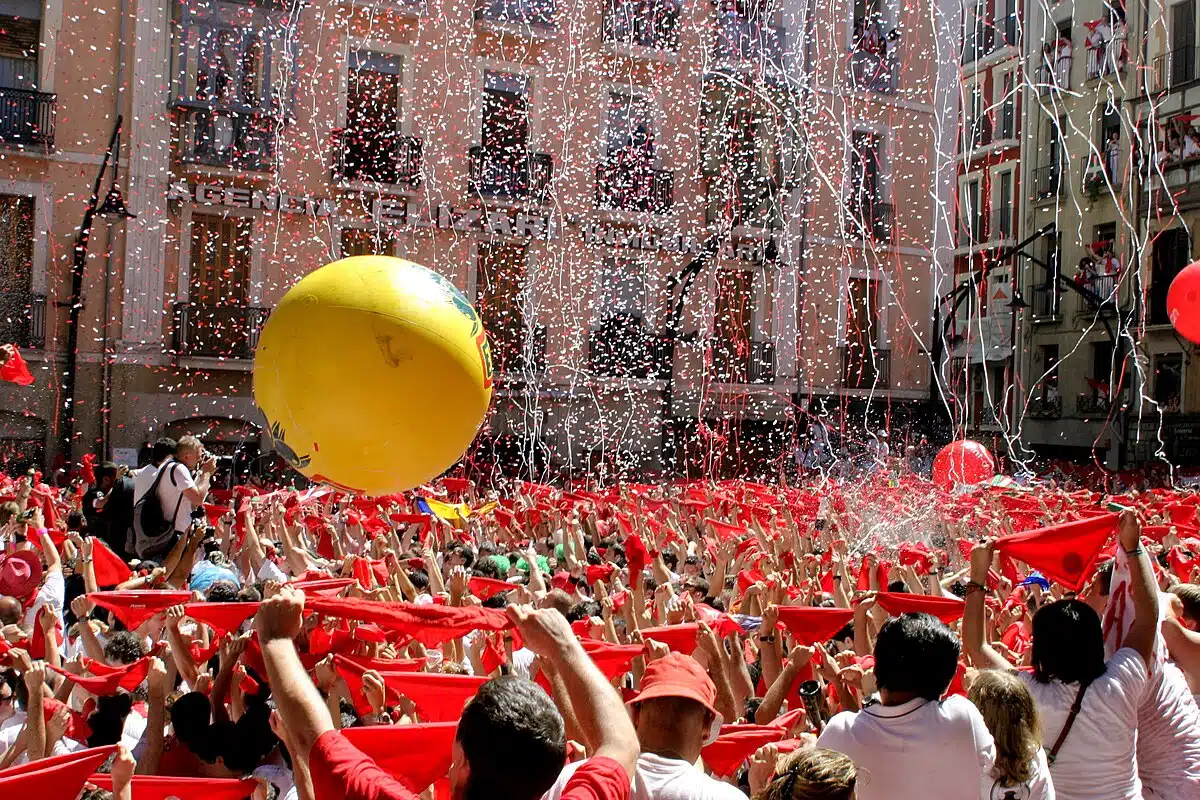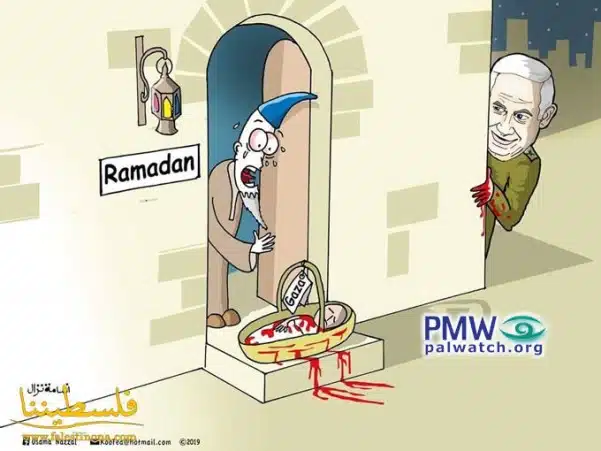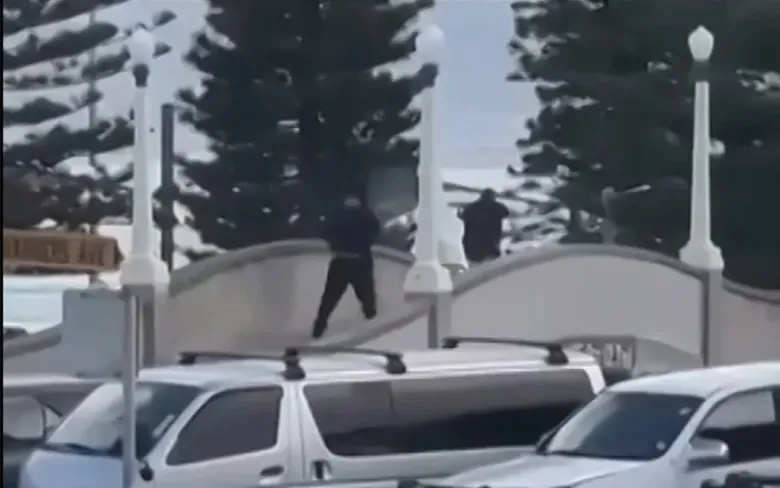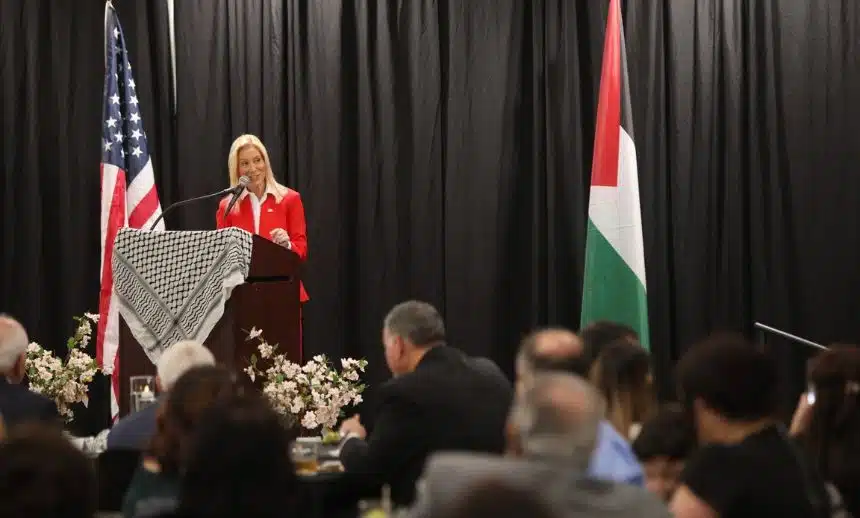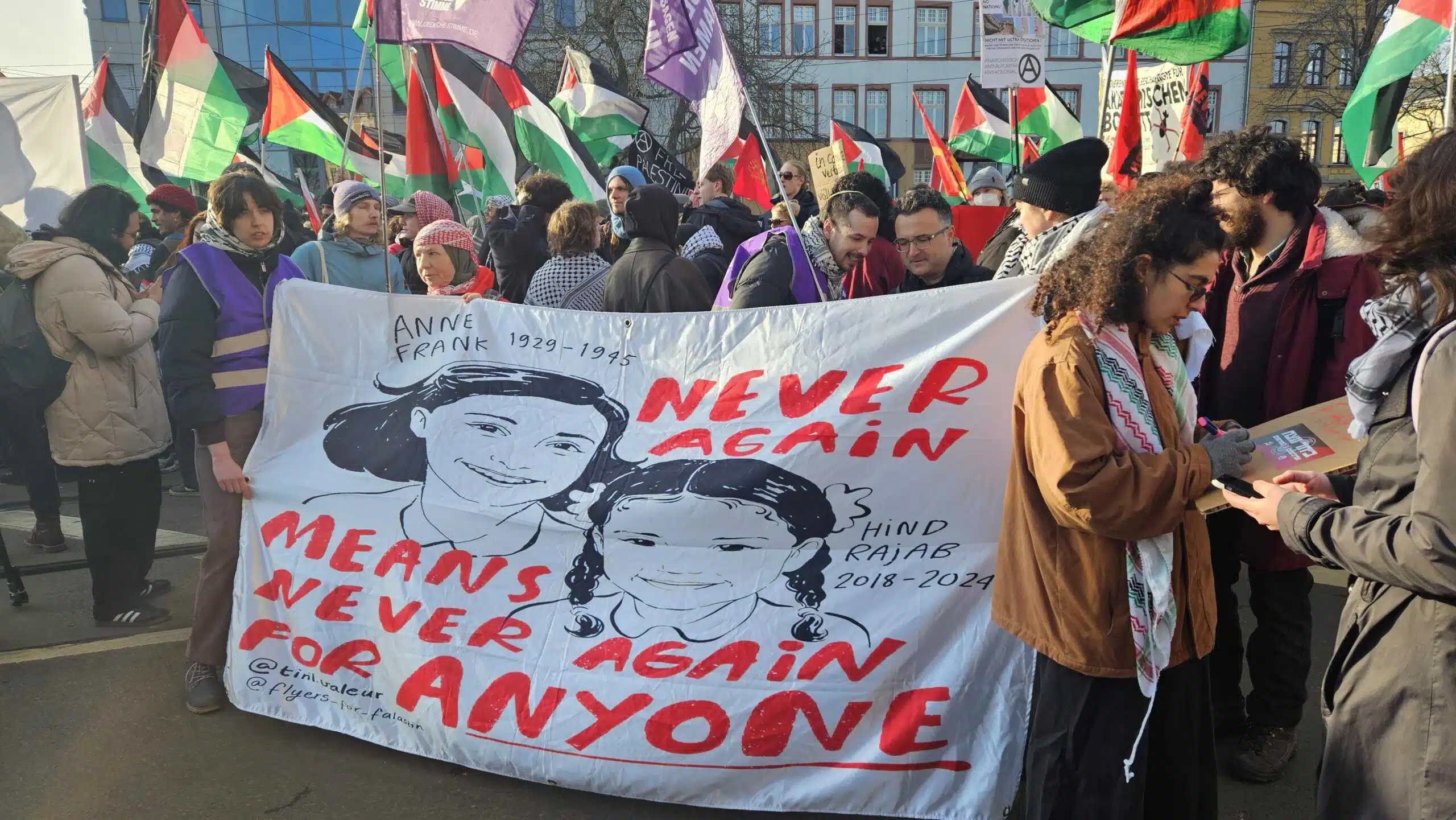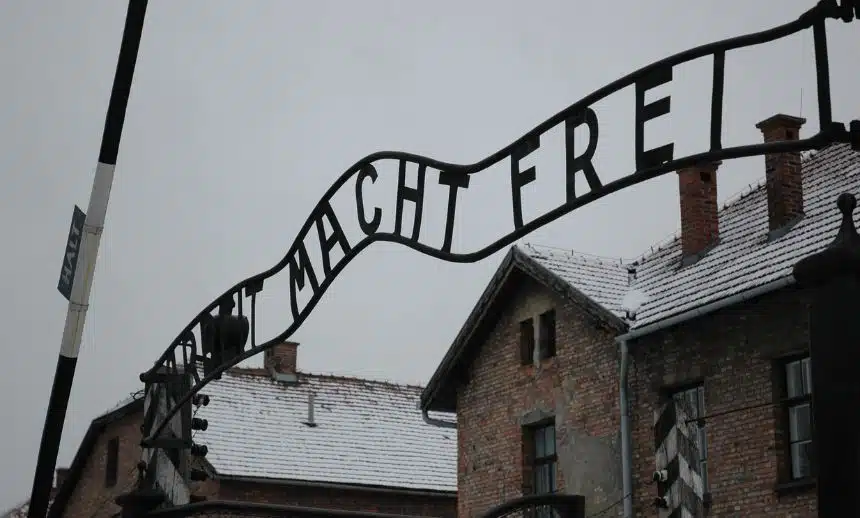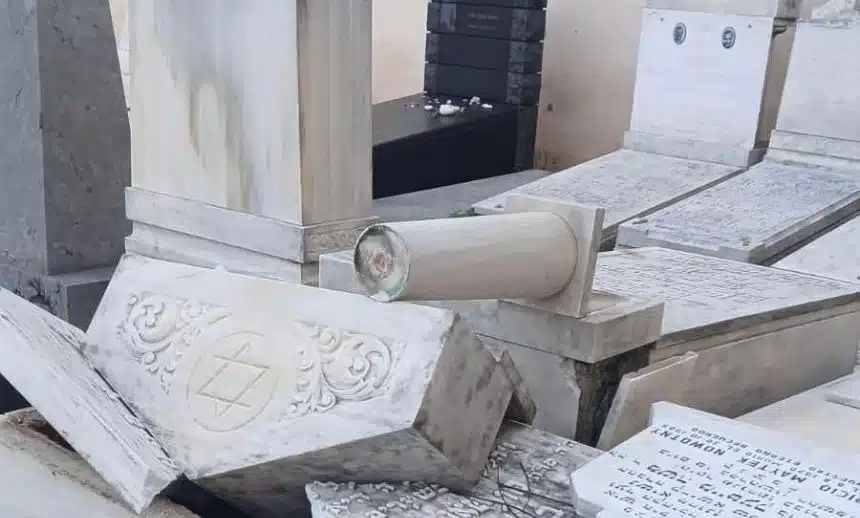|
Getting your Trinity Audio player ready...
|
This analysis was authored by the Antisemitism Research Center (ARC) by CAM:
Each July, the northern Spanish city of Pamplona welcomes tens of thousands of tourists as it hosts the iconic San Fermín festival, which includes the famous “Running of the Bulls.”
But this year, the festival’s opening ceremony, known as the chupinazo (fireworks), offered not a moment of civic unity, but rather political divisiveness. What should have been a joyous communal celebration became a hostile theater for antisemitic bigotry, exposing the persistent undercurrent of Jew-hatred still plaguing Spanish society more than five centuries after the start of the Inquisition.
On Sunday, the firework rocket signaling the beginning of the festival was launched by members of “Yala Nafarroa con Palestina,” a pro-Palestinian group chosen by public vote.
Just before the chupinazo soared over the tens of thousands of revelers gathered in Plaza Consistorial, Yala Nafarroa con Palestina’s Dyna Kharrat shouted “Stop genocide” and “Free Palestine.”
Anti-genocide activists chant for Palestine before the Chupinazo firecracker kicks of Spain’s San Fermin Festival. pic.twitter.com/2VNOrvc7Y5
— PALESTINE ONLINE 🇵🇸 (@OnlinePalEng) July 6, 2025
Kharrar was also seen with fellow Yala Nafarroa con Palestina representatives Lidón Soriano and Eduardo Ibero holding red handkerchiefs — a traditional symbol of the festival — emblazoned with a map of “Palestine” in place of Israel.
The handkerchiefs bear an eerie resemblance to the inverted red triangles that have become a symbol of Palestinian terrorism targeting Israelis and Jews since October 7th.
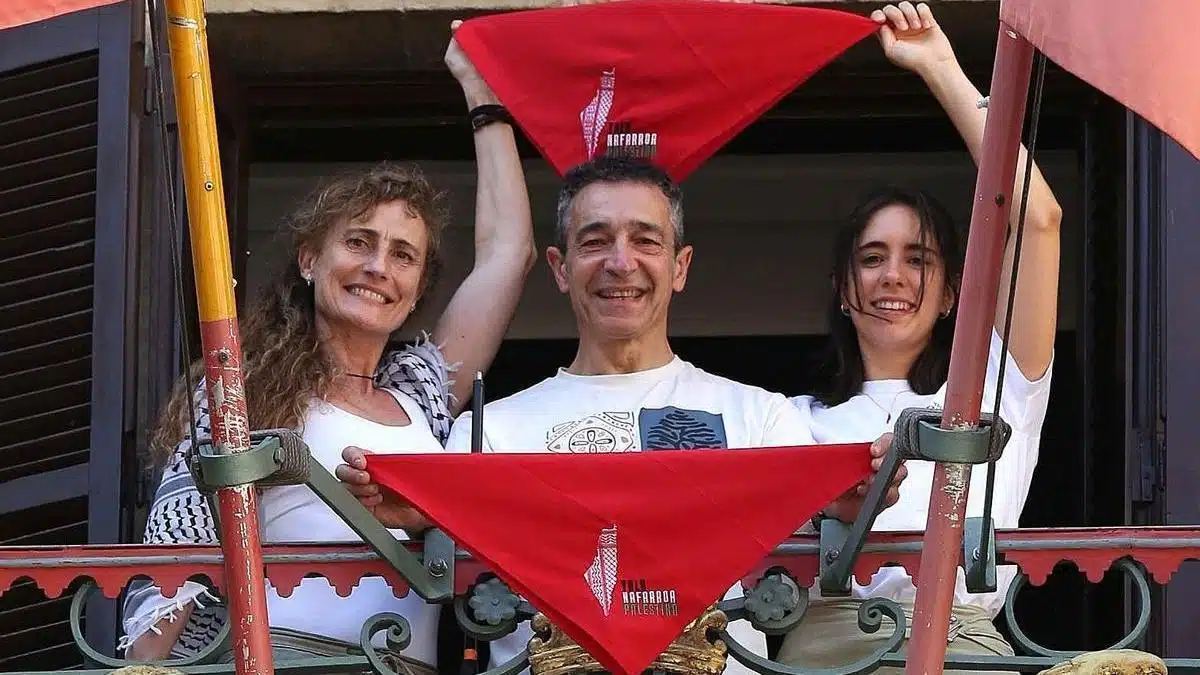
Also in Pamplona this weekend, marchers carried a large banner reading “Destroy Israel.”
Once, mobs shouted “Death to Jews” in European squares — or burned them alive.
Today that’s “Destroy Israel,” like in this photo.
Same hatred. Same chants. New mask.
Israel is today’s “Jew”.
Photo: San Fermín festival, Pamplona. Yesterday. pic.twitter.com/w2syPUtBSV— Dan Poraz (@PorazDan) July 7, 2025
Numerous Palestinian flags were also documented in the crowds and among the onlookers.
These expressions and displays marked the latest manifestation of a now-familiar trend across Europe and beyond in the ongoing aftermath of October 7th — public platforms being hijacked to spread inflammatory antisemitic incitement.
Fontaines D.C., Kneecap, Bob Vylan, and the Politicization of Public Platforms
What happened in Pamplona fit into a broader emerging European phenomenon — public cultural events being repurposed to deliver messages of hate singling out Jews and Israel.
Incidents over the past several weeks involving Irish bands Kneecap and Fontaines D.C., as well as British rapper Bob Vylan, illustrate this clearly.
At a London concert this past Saturday, July 5, the lead singer of the Irish bank Fontaines D.C. joined the crowd in a chant of “Free Palestine,” drawing cheers, and on the stage the digital display read “Israel is committing genocide.”
This mirrored the recent tumult surrounding the Irish band Kneecap, which has faced backlash for accusing Israel of genocide and waving the flag of the Lebanese terrorist organization Hezbollah, and the furor set off by British rapper Bob Vylan with his “Death to the IDF” hate slogan at the Glastonbury Festival on June 28.
Both Fontaines D.C. and Kneecao justified their rhetoric by drawing historical analogies between Irish suffering under British rule and the plight of Palestinians. Such comparisons flatten distinct histories and ignore the specificities of Jewish trauma, perpetuating a false and dangerous narrative that Jews today are “oppressors” and “colonizers,” rather than victims of Palestinian violence legitimately living in their ancient homeland.
Drawing on their Irish background to assert moral authority in standing with the Palestinians, these artists oversimplify and decontextualize a complex conflict to serve their own agendas.
From Spectacle to Reckoning
Organizers of San Fermín had every right to include politically-active groups. But they neglected their responsibility to ensure that the groups chosen would not transform a civic celebration into an antisemitic hate fest.
The events of San Fermín 2025 should not be dismissed as a one-off controversy. They are part of a growing pattern in which antisemitic sentiment is shouted openly in the public square, cloaked in “moral” language.
Spain must reckon with this. It must confront not only its history of antisemitism but the present-day impact of this hate. This process must begin by recognizing that antisemitism in Spain lives on, often in new forms: in misapplied slogans, in cultural analogies that erase Jewish history, and in movements that mask exclusion as justice.
Festivals like San Fermín should be spaces for celebration, unity, and cultural pride, where solidarity doesn’t come at the expense of Jewish safety. This year, Pamplona failed that test.
What happened at Spain’s San Fermín festival wasn’t solidarity, it was antisemitism.
Crowds held signs calling to “Destroy Israel.” Israeli flags were defaced in red. Hamas-style inverted triangles filled the streets. And the city let it happen.
Disgraceful. pic.twitter.com/FsAjuDxVP0
— Combat Antisemitism Movement (@CombatASemitism) July 7, 2025

